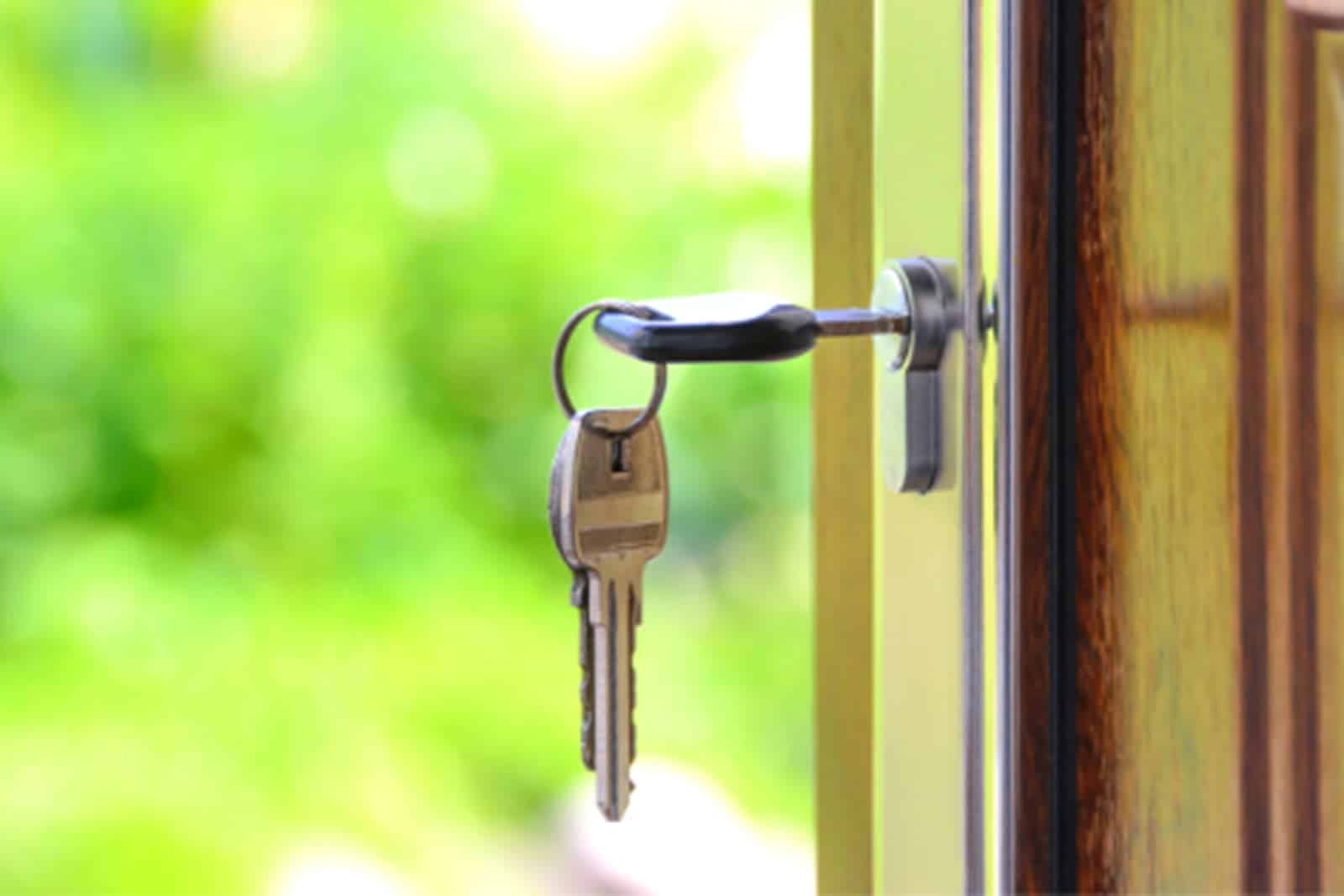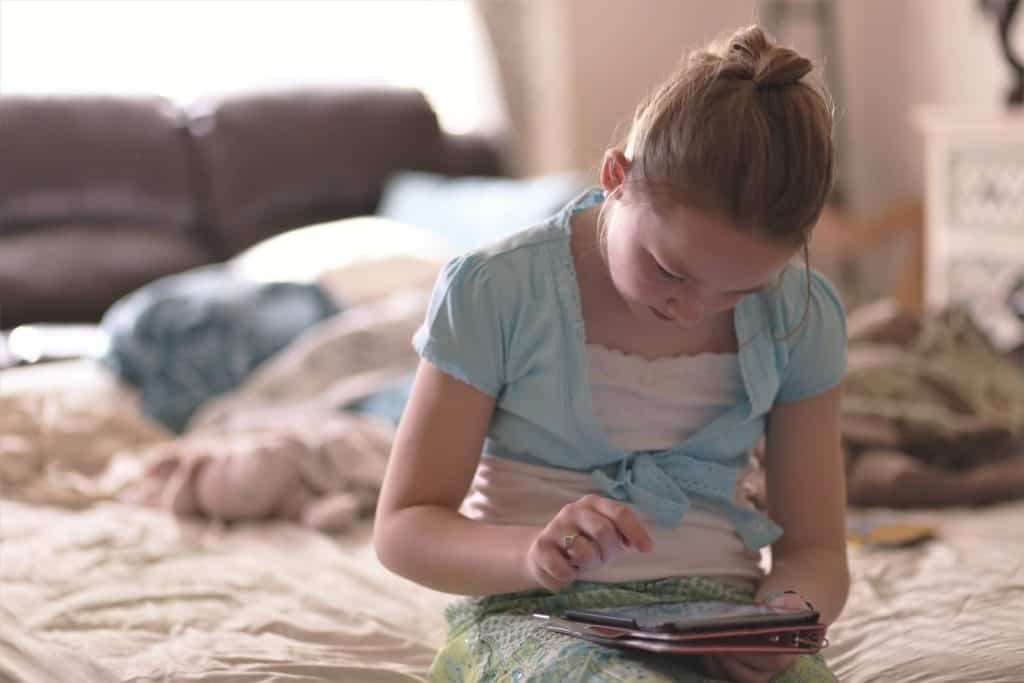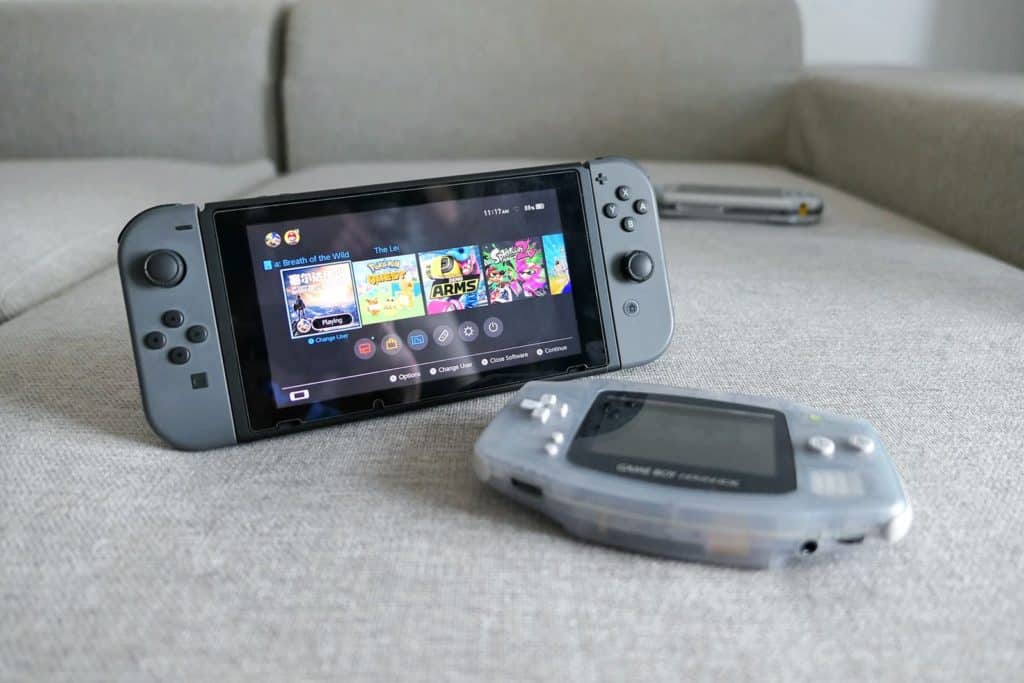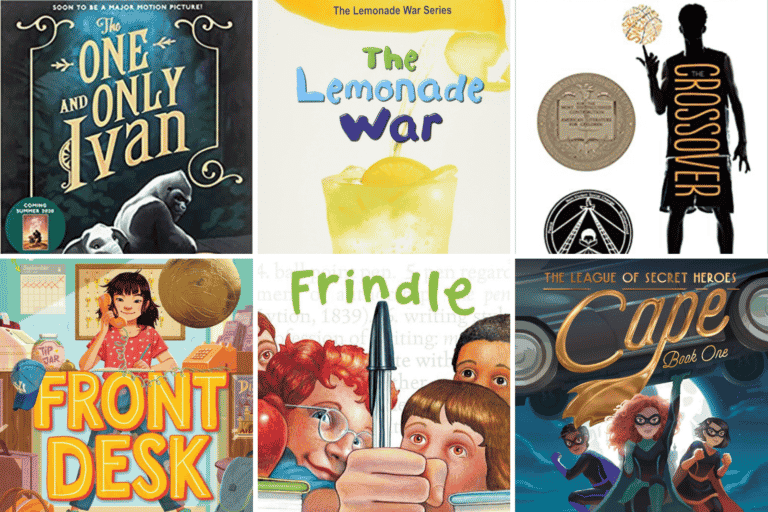What Age Can Children Stay Home Alone

Deciding what age can children stay home alone for the first time comes with a weird mix of worry and freedom. Then there’s the question on the legal age to stay home alone and the legal age to stay home alone with siblings.
Some of the links below are affiliate links. This means that, at zero cost to you, we will earn an affiliate commission if you click the link and make a purchase. We appreciate your support!
My earliest memories of being home alone start in the fourth grade. I rode the bus home by myself and reveled in having the house to myself, lounging on the powder blue couch watching the soap operas my parents never let me watch. (I was responsible, but I wasn’t perfect.)
My youngest sister is 10 years younger than me, and we have very different personalities. She hated being home alone. At the same age that I stayed home feeling free and oh-so-grown up, she felt lonely and scared when she found herself home alone.
At What Age Can Children Stay Home Alone?
We asked more than 30 moms when they started leaving kids home alone, the rules they use and the ways they make sure kids can reach them or others since home phones are rare. But deciding what age can children stay home alone should start with a good understanding of your child rather than what other parents do or say.
As I looked at laws, research and the experience of other moms , and one overarching message marched through everything I found like a pounding drumbeat:
The decision on when to start leaving kids home alone should tie back to who your kids are and what they’re comfortable doing.

Society lays way more pressure on this decision than I realized. Social norms have shifted to kids being left alone much less often and a growing perception that leaving kids alone in nearly all circumstances is unsafe, or even neglect. Today’s parents of tweens face a position that comes with more pressure and stress than our parents’ generation.
When the “at what age can children stay home alone?” topic comes up, there’s almost always at least one person who comments that our generation was coming home alone after school or being left home alone way before we think it’s acceptable to leave our own kids.
Yep, most of us were. A University of California, Irvine study on why we’re so afraid to leave our children home alone backs it up.
One of my jobs in high school was working for the elementary latchkey program. Apparently now we call after-school programs Care After or Before & After School Care because the phrase “latchkey kids” has a negative connotation. Wikipedia even defines it as “a child who is often left at home with little parental supervision, because their parent or parents are away at work.” When I worked at latchkey, being a latchkey kid just meant you stayed after school to play games and do homework at the school because your parents worked.
Legal Age to Stay Home Alone By State
With regard to the legal age to stay home alone, there are only three states with laws on the minimum age according to the U.S. Department of Health and Human Services: Illinois, Oregon and Maryland. The funny thing is that the ages range from 8 to 14.
I asked more than 30 moms when they started leaving their kids home alone, and they trimmed the age range down to 10-12. Age may or may not indicate a child actually is ready to be home alone. ChildWelfare.gov recommends asking yourself following questions:
- Is your child physically and mentally able to care for him- or herself?
- Does your child obey rules and make good decisions?
- How does your child respond to unfamiliar or stressful situations?
- Does your child feel comfortable or fearful about being home alone?
And then asking your child:
- Are you comfortable handling being in charge without abusing it?
- Are you able to calmly handle any emergency or other problems that arise?
- Are you willing to be responsible for the safety of your sibling(s)?
Circumstances sometimes dictate that you consider leaving a child home alone a little earlier than you anticipated. Many moms told me they first started leaving children home alone for short amounts of time due to external factors.
As a 4th grader, last year my now 10 yr old started to stay home alone for up to an hour after school. She was a bus captain so the extended time wasn’t an option for her anymore.
My kids’ school buildings are organized as K-4, 5-6, 7-8, 9-12. The K-4 buildings offer latchkey; 5-6 buildings and up do not. The 5-6 buildings dismiss at 3:45, which is when I can leave school myself on the other side of town. His staying alone isn’t really a choice we’re making but rather the school district is making for us. I mean, I suppose we could hire a babysitter, but our son is very responsible and cautious, and he also knows he’s getting a phone out of the deal.

House Rules for Kids
Beyond decisions on what age can children stay home alone are questions about house rules. Kids home alone should have parameters – things they’re allowed to do and things they’re not. Home alone house rules often vary by family. They might depend on where you live, your personal comfort level with certain things, or the age or abilities of your child.
There are a few biggie house rules we heard over and over from moms, so these can serve as a jumping-off point as you build the set of rules that will work best for your home.
Kids home alone should know what they can and can’t do. Many moms said kids should be occupied. Ask kids to complete a to-do list – practice piano and empty the dishwasher – and then they can watch a specific show on Netflix. (See our list of the best books for tweens if you want to have some on hand.)
Be clear on approved use of Internet, video games, Netflix and other streaming services to avoid random flipping.
1. Don’t cook or eat
For younger kids and shorter amounts of time home alone, many families have a no cooking or eating rule. And we heard many versions of this rule:
- No eating with the exception of yogurt
- No eating unless it’s a simple snack from the pantry
- No eating unless a sibling is home with you and can help if needed
- No cooking unless it’s in the microwave
- No cooking, especially in the microwave
One family with a responsible tween has him preheat the oven at a low temperature and start warming food for the family dinner. What a great way to make family dinners happen more often if you feel comfortable with this – and research shows that regular family meals have serious benefits for tweens and teens.
Another mom of a teenage daughter says yummy after school snacks in the house are essential to keep teens from being grumpy when you get home (I’m certainly scared by the thought of coming home to a hangry teen).
Set your cooking and eating rules based on what you feel is safe and best in your home.
2. Don’t answer The door or home phone
This rule appeared pretty universally, regardless of the age of kids staying home. It seems simple, but there are plenty of gray area situations to talk through with your child to clarify what you really mean by this rule. Throw out a couple “what-if” scenarios to help talk through potentially confusing situations:
- What should you do if the Amazon delivery man knocks on the door?
[Give a reminder that opening the door, even for a long-awaited package, doesn’t happen until a parent is home.] - Should you let the dog out while you’re home alone?
- What should you do if someone calls the house and asks for me?
[Decide whether you want to have rules about answering the phone. If not, make sure kids know to tell the caller you’re busy right now and will call back later.] - What should you do if a friend on the bus asks if she can come over to play after school?
[Moms of tweens and younger seemed in agreement over a “no friend over while you’re home alone” rule, but this might evolve as kids move into their teens and spend longer times home alone.]
We quizzed our son repeatedly. “You’re home alone and your best friend Connor rings the doorbell. What do you do?” BTW, he answered IDK, let him in? To which I responded “Oh, so you opened the door to find out?”
[If the rule is to not answer the door, you may need to clarify whether that also means not asking “Who is it?” or looking through the peephole or front window. And emphasize that not answering the door does not just apply to strangers. Highlight any exceptions to the rule – maybe grandparents or parents. One mom told us she and her kids chose a safe word, and that any adult at the door saying he or she was sent by the parent must know the safe word to be trusted.]

The Ring Doorbell lets you see when kids get home or who comes to the door when they’re home alone.
With my kids home alone more and more, I’m in love with my Ring Video Doorbell. It sends an alert to my phone when it senses them at the front door and I can activate the speaker and talk to them. I also know if anyone else comes to the door and I can talk to them, too. It gives me peace of mind when the kids are home and I’m not. My husband just told me he plans to bite the bullet and pay the $3 monthly fee to have access to recordings and not just the live feed. Fine by me!
In less than 2 minutes, I share my favorite features of the Ring Doorbell.
3. Communicate
Communication-related rules topped many moms’ lists. We want to know our kids made it home. We want to know they’re still safe at home. We want to let them know when we’ll be home. As moms, we basically want our kids to always be reachable. We also want to make sure they’re wise about communicating with anyone else while home alone.
Many of us don’t have a home phone. If your tween doesn’t yet have his or her own cell, there are other options for staying connected:
- Activate an old cell phone or buy a separate cell phone to serve as a home phone.
- Communicate via Alexa. My husband and I both have the Alexa app on our phones, which allows us to text, call or drop in on either of our two Echo Dots. When our kids are home alone, our rule is that they must be in a room with Alexa (they’re welcome to move her from room to room as needed).


Alexa devices can function as a home phone for children at home alone.
A friend recommended the drop in feature, and I love it because it doesn’t ask the kids to answer the call. It literally drops in and I just hear what’s going on in the room. I need to load the other contacts from my phone into Alexa and update my emergency call list to clearly show the names of key contacts in terms Alexa will understand. For example, if my mom is in my phone as “Mom” and my son asks Alexa to “Call Mimi,” it won’t work. Alexa also can’t directly call 911 (check out this Lifewire blog post for workaround ideas).
See my super quick demonstration on how to use the “drop in” feature on my Amazon Echo Dot.
We LOVE using Alexa to communicate with our kids when they’re home alone.
The Echo Dot is the most popular Alexa device. The Echo Show takes the Dot up several notches. It makes video calls with kids easy, and you can also use it to stream music, view recipes or watch TV and movies.
- Buy a prepaid phone at Walmart or Target and purchase additional minutes as needed. This enables kids to call 911 or other contacts in an emergency and can serve as a backup to Alexa.
Beyond a reliable way to communicate, moms gave us some other great suggestions on the communication front:
- no headphones so they can hear
- post a list of emergency contacts and be clear what neighbors to contact in case of an emergency
- I check in every 30 minutes (he’s about 11)
- As soon as he walks in the door, he has to call me. I tell him where I am, when I will be home, and what he needs to do until I get home.
Many moms I know use the Life360 app to know where kids are and what they are doing. It’s great tech, but it shouldn’t take the place of actual correspondence.
Life360 will send a notification when the kid arrives at home, but I ask my kiddo to send me a text or call me to tell me she’s home instead of relying on the app. That way my kiddo feels a sense of responsibility to communicate when she’s home from school, if she wants to go outside, if she wants her friend to study with her. (Bonus: I learn more about her day vs a robot “kid has arrived home” message.) If something goes awry, she has that same sense of responsibility to communicate with us.

Our post on using tech to teach responsibility to tweens goes deeper into ways to help our kids develop healthy tech habits rather than tech obsessions.
Children Home Alone Watching Siblings
A logical next question after deciding at what age can children stay home alone is at what age children can stay home alone with siblings. Feedback from moms showed the widespread family differences that go into the decision of when and whether to let one child watch a sibling.
Some moms said certain siblings will never be left alone together, regardless of age, based on their personalities and interactions. Others left a child home alone at 11, but didn’t let her watch siblings until she was 12 or 13. Some decisions were based on trial and error. If you run a 15-minute errand and come home to shouts of “You’re not the boss of me!” it might be too soon.
Since my son was 11, I’ve let him watch his siblings for short amounts of time. I set ground rules on what everyone should do while I’m gone (usually it involves a screen because I wanted to keep things simple for them when it was new). I also take a report from all parties when I return. My kids know that a bad report from anyone – babysitter or babysat – will mean lost privileges.
There’s also a careful balance between older siblings watching younger sibling as a way to help the family, kind of like doing chores, and taking advantage of older kids by constantly using them as a free sitter. I try to show appreciation by allowing some extra privileges and paying my son for longer or more formal babysitting responsibilities, but he knows he’s not getting paid as a babysitter every time I ask him to watch his siblings.
Preparing Your Child for Being Home Alone
The Red Cross and many school districts and YMCAs offer classes for kids on being home alone. Kids test their comfort level with being home alone in different situations and learn things like basic first aid and what to do in emergency situations. This can help determine at what age can children stay home alone.
If they have cell phones, they can download the First Aid App from the Red Cross.

If your children take a class, it likely will require them to be home alone for a short stay, a longer stay and a night-time stay. This is also something you can do on your own to build confidence in kids staying home for the first time. Start with small increments of time and build up.
Newbie: Home while you visit a neighbor for 5-10 minutes
Feeling Comfortable: Home while you take a 15-20 minute walk around the neighborhood or run to pick up a sibling from an activity. Home for 1-2 hours during daylight hours, maybe getting off the bus by themselves.
Proven Comfort and Good Judgment: Home while you’re at work for a day or home with siblings while you’re out on a date night.
Do you have rules or suggestions for moms trying to build a rulebook for kids staying home alone? Please share in the comments below!








We are at the stage where we are starting to let our 4th grader stay home for short periods of time (an hour or less). If it is 30 or less we may let him be in charge of his younger brothers as well. We are now looking to the future and next year we will not have consistent before school care and are wondering if the 3 of them could get ready and on the bus independently. Thanks for this. It gives us many things to consider.
It’s a big change! But it’s so worth it when it’s time.
Very helpful. As my kids get older I wonder when people start letting their kids stay home alone.